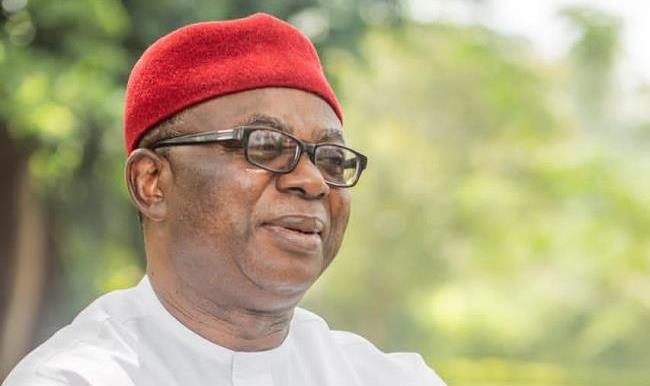Climate Change: Stakeholders tasked on meaningful impacts to address challenges
By Zeniat Abubakar Abuja
Stakeholders in the environmental sector have been urged to engage state and non-state actors, the private sector, CSOs, to collaborate and make meaningful contributions towards ameliorating the negative impacts of climate change in Nigeria, Africa and the world.

Member South East governing board and Chairman Committee on Security Climate Change and Special Intervention North East Development Commission, Mr Sam Onuigbo stated this during the Post-COP28 multi-stakholders consultative dialogue held in Abuja the nation’s capital.
Mr Onuigbo also noted that more work is needed to deliver commitments and action that match the priorities of Nigeria and other emerging economies facing climate impacts.
“The commitments to triple global renewable energy capacity by 2030 are crucial. This is the direction the market is already headed given the rapidly improving economics of renewable energy deployment. As a country with acute energy poverty, renewable energy can be our solution. Fortunately, we have enacted the Electricity Act 2023 thus liberalizing the sector and opening it up for investments in renewables leveraging on mini- and off-grids.” He explained.
He also stated that more work is needed to address the urgent priorities of adaptation finance , while also calling on the devloped countries to fulfil thier pledge by providing the much-needed financial support.
 According to him “Another key decision from COP28 was the operationalization of the Loss and Damage fund, this is crucial, however, the commitments thus far do not match the billions already needed by communities across the globe to tackle the losses and damages from climate change impacts. Thus, much more work is needed to address the urgent priorities of adaptation finance and to ensure principles of equity are hard-coded into our now-acknowledged global pivot away from fossil fuels.
According to him “Another key decision from COP28 was the operationalization of the Loss and Damage fund, this is crucial, however, the commitments thus far do not match the billions already needed by communities across the globe to tackle the losses and damages from climate change impacts. Thus, much more work is needed to address the urgent priorities of adaptation finance and to ensure principles of equity are hard-coded into our now-acknowledged global pivot away from fossil fuels.
“Phasing out of fossil-fuels is a mandatory route. However, the principles of equity and fairness must triumph. For us, it is about making strategic plans for a gradual phasing out and hoping that the developed countries will also do their part in providing the much-needed financial support. “
Mr Onuigbo further said that Nigerian government must sustain advocacy for its robust implementation from the federal to the subnational in order to engender complete resilience building and sustainable development.
“We can no longer discuss development without climate change, the two are not in competition rather they are complementary. As Nigeria and other African countries update their Nationally Determined Contributions (NDCs) going into COP29 and COP30, there is need to be more ambitious with our targets especially the intersections between food security and energy, while maintaining our focus on development.” He added.
The workshop which was organized by the Climate and Sustainable Development Network (CSDEVNET) is to help in preparing for greater climate actions ahead of COP29 in Baku, Azerbaijan, later this year.
Mr Onuigbo was also unveil as one of the patrons of the Network — Climate & Sustainable Development Network of Nigeria (CSDevNet).
CSDevNet’s brings together organisations that are at the frontiers of championing climate action and sustainable development across Nigeria.


Comments are closed.